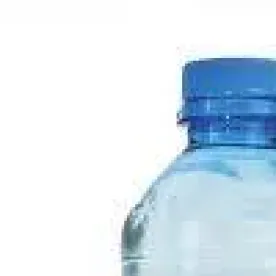Water: two parts hydrogen, one part oxygen. It seems simple enough, but for companies selling bottled water, liability lurks below the surface. According to a recent lawsuit, consumers care not only about what is in their water; they care about where it comes from. Perhaps more importantly, according to the plaintiffs—so do regulators.
In Patane v. Nestle Waters N. Am. Inc., 314 F.Supp.3d 375 (D.Conn. 2018), Nestle faces allegations that it made millions of dollars by fraudulently labeling Poland Spring Water. The complaint, filed by plaintiffs from nine different states, claims that Nestle bilked consumers out of millions by selling tap water under the guise of spring water.
The legal question appears straightforward. The Code of Federal Regulations specifies that to be marketed as spring water, water must be collected at the source of a naturally occurring spring or from a well that extracts water that could otherwise exit from an existing natural spring. The Patane plaintiffs contend, however, that none of Nestle’s water-wells meets this standard. The complaint alleges that “the famous Poland Spring in Poland Spring, Maine, which Defendant’s labels claim is a source of Poland Spring Water, ran dry nearly 50 years ago. Nonetheless, the complaint states that due to “a revenue-generating licensing agreement with [Maine] . . . . it has not required [Nestle] to prove that the water produced from the three wells complies with the FDA’s spring water Identity Standard.”
The amended complaint just survived a motion to dismiss, giving Nestle cause for concern. The original complaint, filed last year, was dismissed without prejudice on the basis that the federal Food, Drug, and Cosmetic Act preempted the plaintiffs’ state law claims. The amended complaint, however, successfully recast the allegations as claims for fraud, breach of contract, and violations of various states’ consumer-protection statutes.
Nestle raised a litany of defenses for why the case should be dismissed.
-
First, Nestle claimed that state courts should decide the dispute. This argument failed because the plaintiffs were not asking for relief “that would interfere with the ongoing authority of the state to enforce its laws.”
-
Second, Nestle argued that the court should dismiss the case to allow the FDA to decide for itself whether Poland Spring Water meets the FDA definition. This defense also failed because, as the court noted, the FDA allows states to decide if particular water products meet the federal standard.
-
Third, Nestle argued that the plaintiffs improperly raised state law claims based on federal law violations. The court again disagreed, finding that the claims for unfair trade practices under state law were independent of federal law violations.
-
Nestle also claimed it was compliant with the FDA standards. While that defense may ultimately prove successful, the court ruled that the fact-based defenses were inappropriate at the motion to dismiss stage.
Legal battles persist over how much flexibility companies have in marketing and labeling their products. Companies, however, have scored some important victories. Hormel Foods just defeated a suit claiming its use of “natural” in labeling certain pork products was misleading because the company used antibiotics; Ornua Foods recently defeated a similar suit alleging that its “grass-fed” labels on Kerrygold’s butter misled consumers because the cows’ diet contained some grains. These cases bring to light the tensions between puffery and representations, commercial speech protections, and reasonable consumer expectations. Whether Nestle ultimately prevails remains to be seen. But one thing is clear: the uptick of mislabeling claims will not be abating anytime soon.





 />i
/>i

